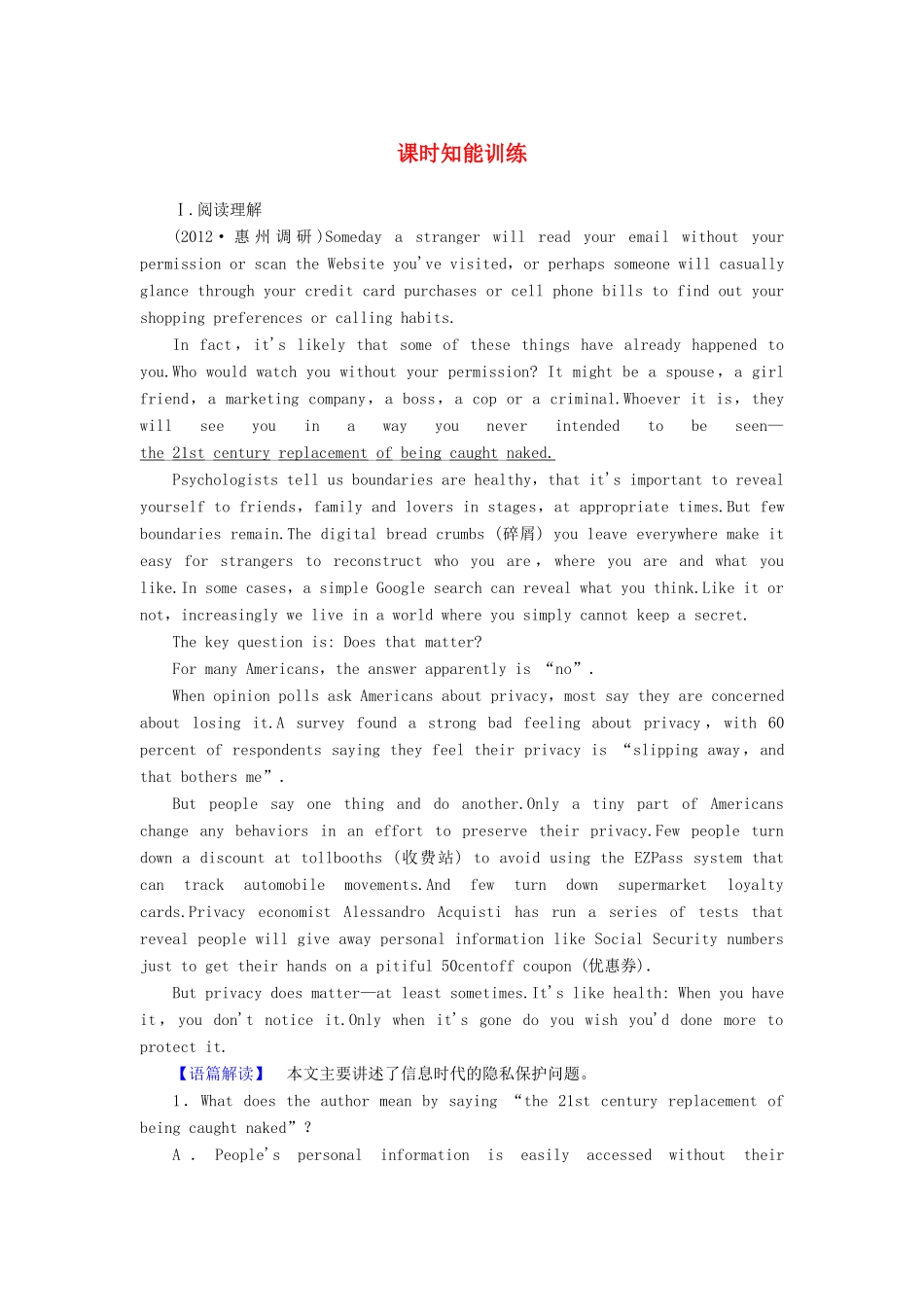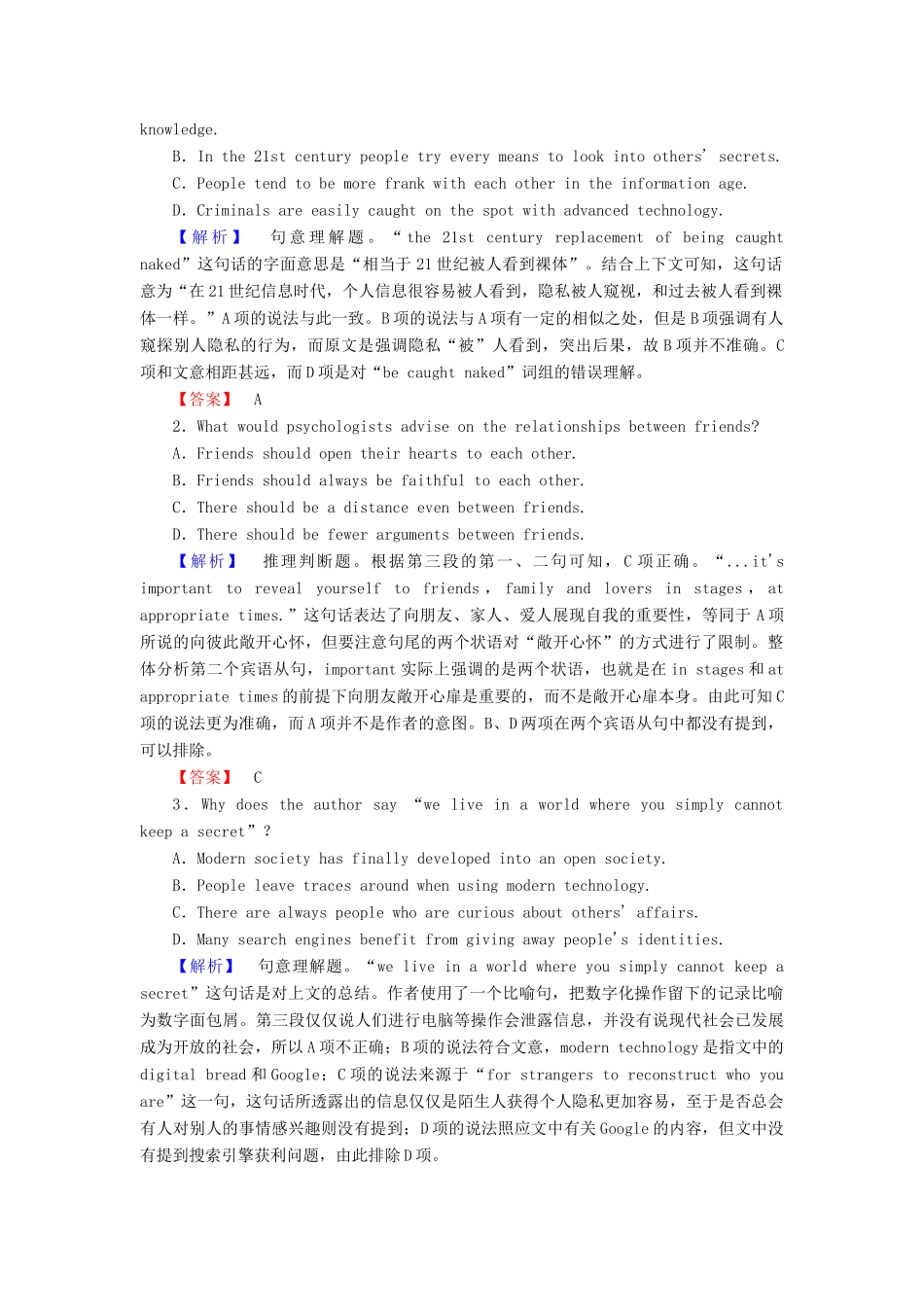课时知能训练Ⅰ.阅读理解(2012· 惠 州 调 研 )Someday a stranger will read your email without your permission or scan the Website you've visited,or perhaps someone will casually glance through your credit card purchases or cell phone bills to find out your shopping preferences or calling habits.In fact , it's likely that some of these things have already happened to you.Who would watch you without your permission? It might be a spouse,a girl friend,a marketing company,a boss,a cop or a criminal.Whoever it is,they will see you in a way you never intended to be seen—the_21st_century_replacement_of_being_caught_naked.Psychologists tell us boundaries are healthy,that it's important to reveal yourself to friends,family and lovers in stages,at appropriate times.But few boundaries remain.The digital bread crumbs (碎屑) you leave everywhere make it easy for strangers to reconstruct who you are , where you are and what you like.In some cases,a simple Google search can reveal what you think.Like it or not,increasingly we live in a world where you simply cannot keep a secret.The key question is: Does that matter?For many Americans,the answer apparently is “no”.When opinion polls ask Americans about privacy,most say they are concerned about losing it.A survey found a strong bad feeling about privacy , with 60 percent of respondents saying they feel their privacy is “slipping away,and that bothers me”.But people say one thing and do another.Only a tiny part of Americans change any behaviors in an effort to preserve their privacy.Few people turn down a discount at tollbooths (收费站) to avoid using the EZPass system that can track automobile movements.And few turn down supermarket loyalty cards.Privac...


